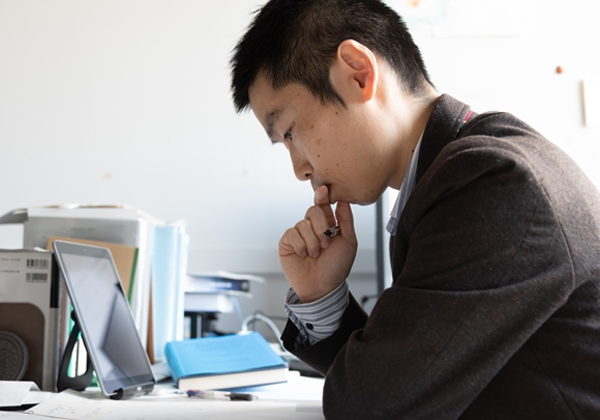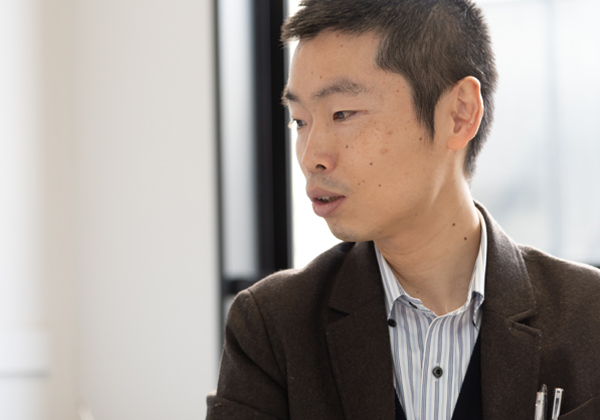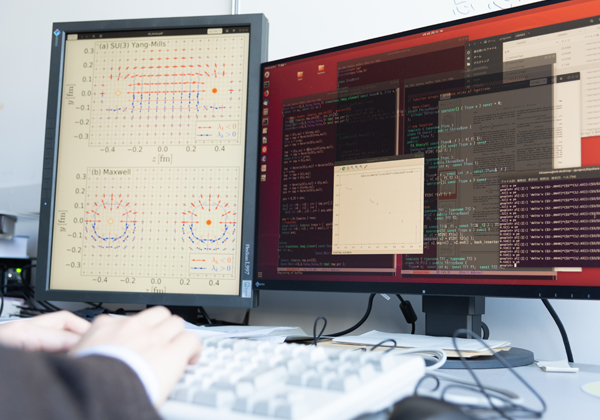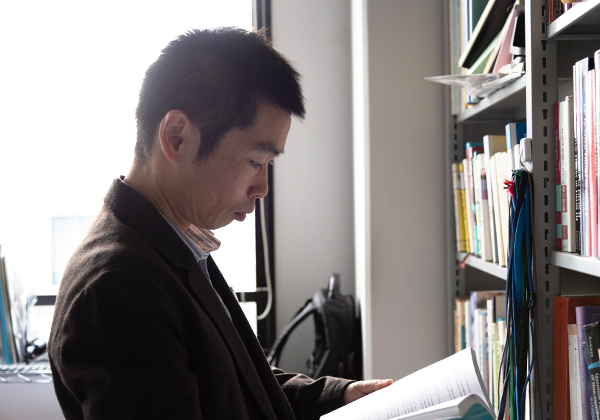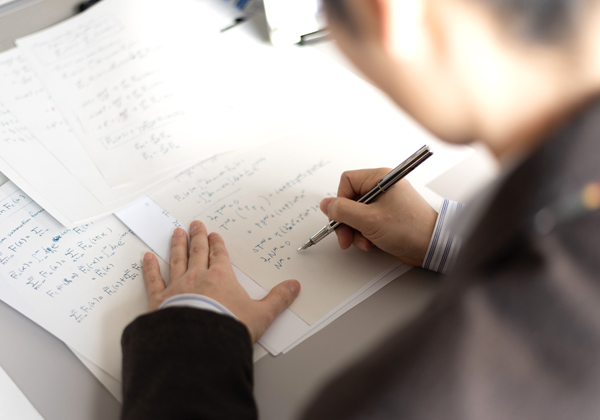Dr. Yukawa’s passion for research is the driving force behind my motivation.
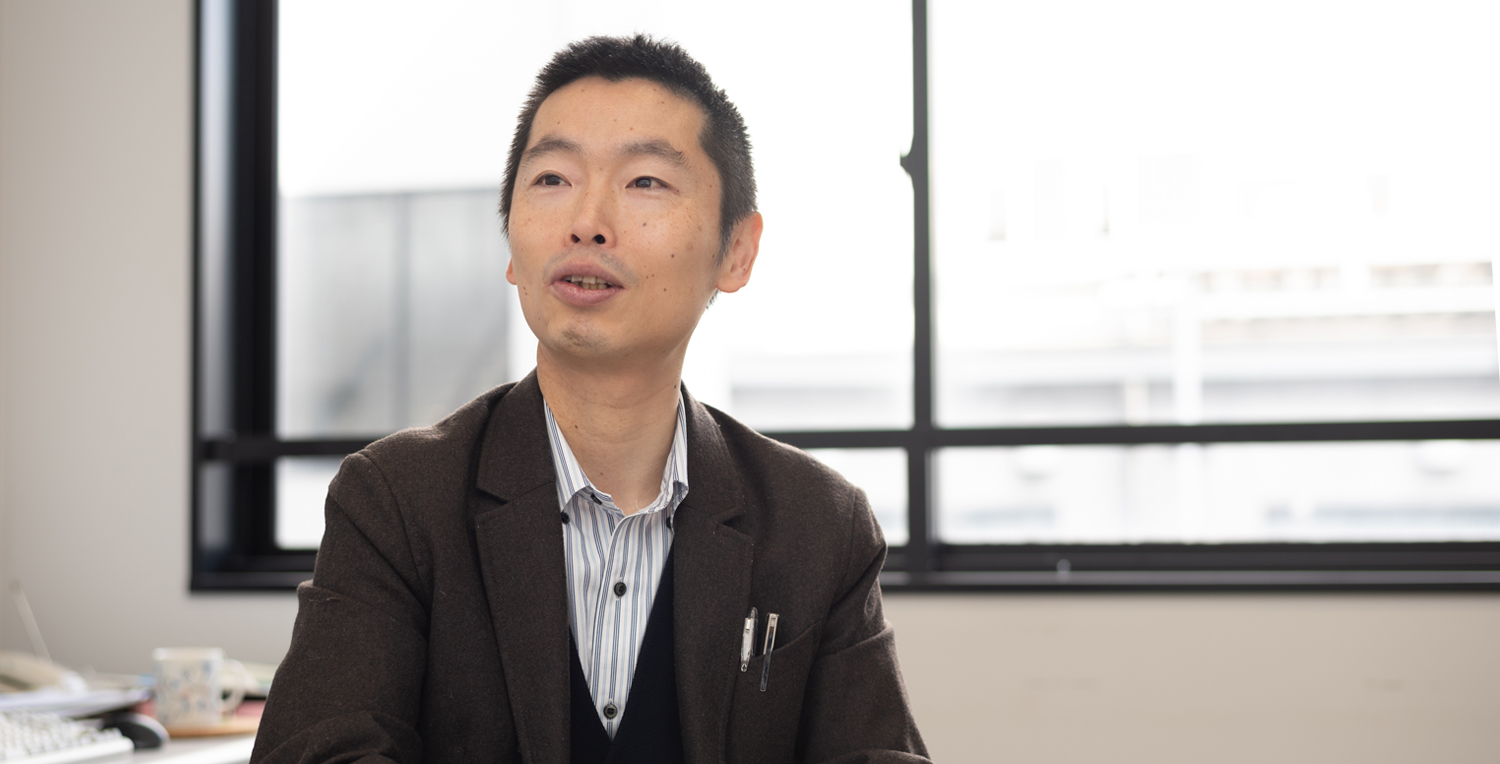
|
Q:What do you think of the historical materials of Hideki Yukawa on display? They are simply overwhelming. They completely changed the image of Dr. Yukawa I had. The particles discovered by Hideki Yukawa were named after him (Yukawa’s meson) and he was the first person in Japan to be awarded with a Novel Prize, so he was inarguably a great achiever. However, I personally feel that many people, particularly in the physical society, have an image that Hideki Yukawa seized glory without trying very hard. To tell the truth, I thought so too myself. I tried to figure out why many people had that image. There are some episodes of Hideki Yukawa during the years when he was at Osaka Imperial University conducting the research that led to the winning of the Nobel Prize. His superior, Hidetsugu Yagi, growled at Yukawa. He said, “You are lazy. You don’t write any papers,” “I should have asked Shin-ichiro Tomonaga to come, instead of you” and the like. For some reason, those episodes are well-known in the community of physicists. Dr. Yukawa is so famous and respected, I can see that those episodes continue to be passed down. However, those stories may cause a misunderstanding in people that Hideki Yukawa unwillingly wrote a research paper because his superior reprimanded him and he won the Nobel Prize by accident. |
|
|
|
Q:Did that image of Yukawa change after examining the historical materials? Yes, I think so. By coincidence, I study theoretical physics at the same university, The University of Osaka, as Hideki Yukawa did, and I imagine from my standpoint that he had a tremendous passion in those years. This image of Hideki Yukawa is quite opposite to the image one would get from the anecdote that Yukawa was reproached by Professor Yagi. I was quite shocked when I read the historical materials. Those historical materials are testimony that Yukawa conducted research feverishly right from the time he took the post at Osaka Imperial University. Needless to say, there was no Internet at that time so communication of information was slow and inconvenient. What’s more, since revolutionary theoretical systems such as quantum mechanics and the theory of relativity had just been completed in the field of physics at that time, “new physics” was being built quickly based on the newly formed foundation. Therefore, I reckon that staying abreast of the cutting-edge research results must have required immense efforts. Yukawa worked harder than others and that led to Japan’s first Nobel Prize. When I see the records of what Yukawa did in those days, I cannot help but be impressed by his overwhelming efforts. I hope people whose images of Dr. Yukawa are close to mine will see the historical materials of Dr. Yukawa and renew their images of Dr. Yukawa. After seeing the historical materials, they may feel that Professor Yagi, who did not acknowledge Yukawa’s assiduous efforts and gave him harsh comments according to the episode, was unreasonably harsh to Yukawa. When you realize that even Dr. Yukawa was sometimes treated unfairly, you may not feel as distressed as before when you think you are in an unfair situation. |
|
Q:How did Hideki Yukawa influence you to become a physicist? When I became old enough to know about Nobel Prizes, there were only seven Japanese Nobel Prize winners. Nobel Prizes in Physics were awarded to only three persons in Japan. There are many Japanese Nobel Prize winners today, but they were rare in those years and people admired them. I memorized all their names in no time. The Japanese winners of Nobel Prizes in Physics at that time were Hideki Yukawa, Shin-ichiro Tomonaga and Reona Esaki. Dr. Yukawa was exceptional. After all, his name is easy to read (LOL). No mistake in reading his name incorrectly, unlike “Tomonaga.” [Note: The two kanji characters in the name “Tomonaga” can also be read “Asanaga.”] Even when I was a little boy, the greatness of his achievement, Yukawa’s prediction of meson, was easy to understand. To the mind of the young boy, predicting the existence of unknown particles based on the theory formulated with a pencil and paper was cool. I remember I aspired to win a Nobel Prize in Physics just like Dr. Yukawa did. I guess I was a typical “physics boy.” My physics teacher in the high school, named Midorikawa, mentioned during the class that he attended a lecture given by Hideki Yukawa when he was a university student. I clearly remember the impact I received from his mention. Dr. Yukawa is a historical person to me since he was not alive when I was old enough to know who Dr. Yukawa was. How lucky to study physics directly under Dr. Yukawa!! For a simple-minded boy like me, that was enough for me to admire my teacher Midorikawa. Of course, I listened attentively to everything this teacher said in the class. In his class, we had to often conduct experiments and write a report on each experiment as homework. I worked my hardest to write those reports. Although the students’ reports were evaluated on a scale of 5 points, I received 10 points on two of my reports. I felt as if I were acknowledged by Dr. Yukawa and that made me very happy. I probably wouldn’t have become a physicist if I weren’t interested in Dr. Yukawa or his achievements. In retrospect, Dr. Yukawa had significant influence on my life. |
|
|
|
Q:Will the historical material be useful in your future research? The opportunity of reading the historical materials of Dr. Yukawa also gave a chance to think about my life as a researcher. Researchers basically enjoy their research, but research can be cumbersome or may seem irrational from time to time. In addition, I am quite busy doing other things in the university besides research, such as teaching classes and writing various papers. So, when those tasks pile up, I sometimes feel like postponing my research activities for the day and going home to sleep. What’s important at a time like that is to inspire yourself constantly to continue working or researching. Otherwise, it is not possible to produce research results continuously. When it comes to what inspires me to continue working even in a distressed state, I don’t think a simple liking of physics is enough. So, what are other driving forces? I have recently come to realize that learning the achievements of the noted scientists in the past and my senior researchers made me want to become a great researcher. Researchers who make great achievements have extraordinary enthusiasms in their research. Many of my senior researchers are still actively working on research activities even though they have accumulated ample achievements. I see them as my role models and devote myself to research, postponing my dinner for a while if I need to in order to get closer to where they are. The historical materials made available to the public are invaluable records of how Dr. Yukawa, a great physicist who pioneered the theoretical physics in Japan, conducted research and devoted himself to research during his youth. Reading them gave me a motivation to work even harder, and I’m sure those materials will give encouragement to all others including researchers and students. (English translation by KSI.) |


